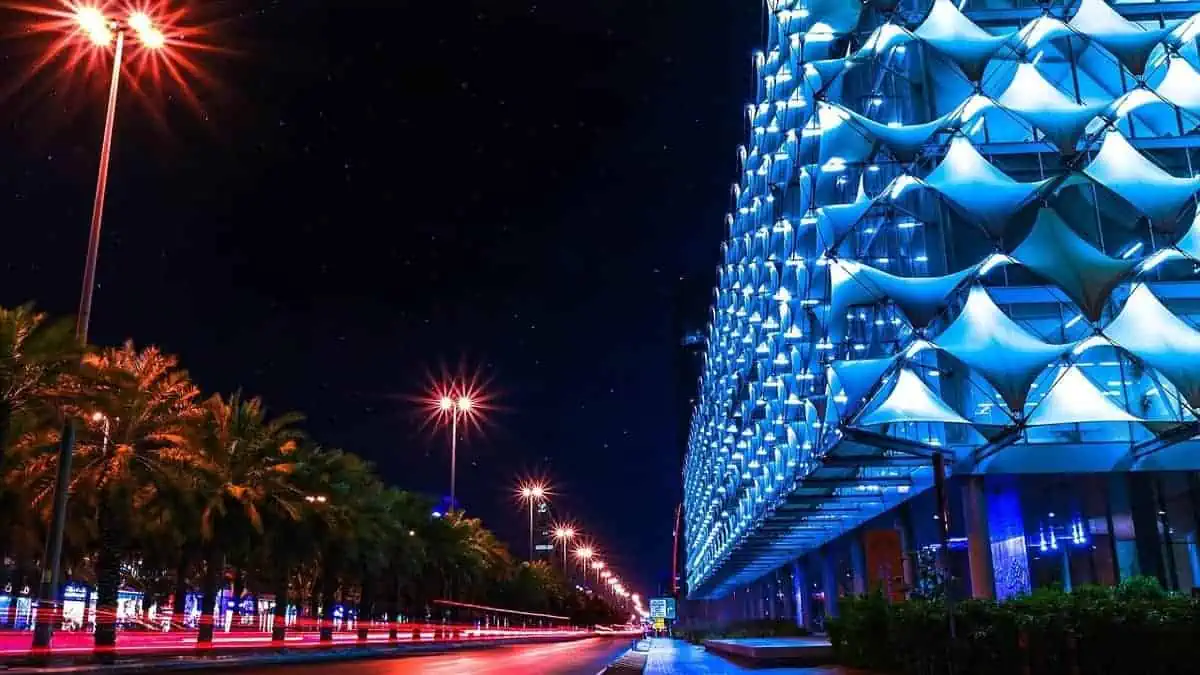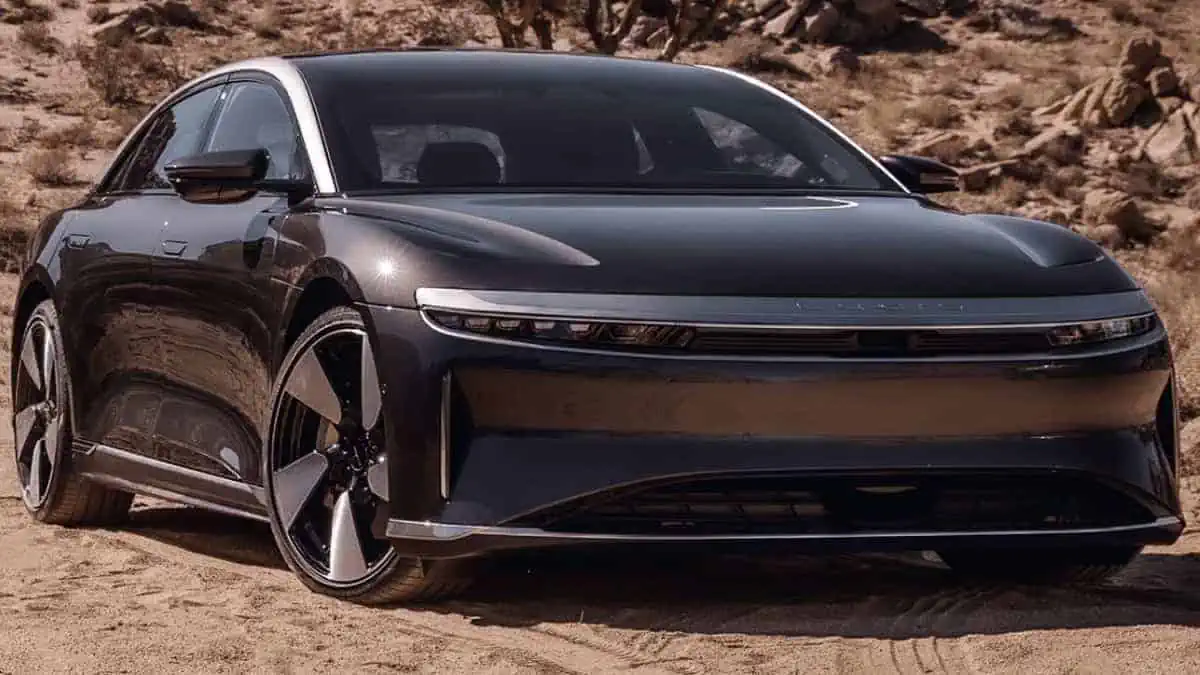The Kingdom lays out an ambitious program to diversify its economy from relying on oil revenues.
Saudi Arabia has attempted to start its automobile industry for decades but has yet to succeed. It is now making another attempt, but this time with electric vehicles.
The electric vehicle project is part of the Kingdom’s idealistic diversification drive to wean itself off its dependence on oil income, the world’s largest energy exporter’s primary revenue source.
To produce 500,000 vehicles in 2030
It plans to invest billions of dollars in the project to build an electric vehicle manufacturing center, to produce 500,000 cars per year by 2030.
Lucid Motors, a US-based company in which Saudi Arabia has a majority stake worth approximately $2 billion, intends to produce roughly a fraction of that target in the Kingdom.
Saudi Arabia wishes that switching to electric vehicles will increase the country’s chances of success, as the petrol engine market is challenging due to the superiority of founded automakers in Europe, the United States, and Japan.
According to one Saudi official, the battery-powered market provides a more level playing field than combustion. It would pit the Kingdom against other major electric vehicle manufacturers such as China, Germany, and the United States.
Furthermore, Saudi Arabia can use its financial muscle to “buy into” the electric market, aided by its large petrodollar surplus.
It’s a sector that’s already been developed,
They [the Saudis] can buy into it and invest in it rather than build something from scratch. It’s gaining traction in global usage, and it factors into the energy transition story as well
Monica Malik, Chief economist stated on Saudi’s EV investment
Public Investment Fund to invest in EV production
With its powerful electric vehicle manufacturing economy, robust technology, high productivity, and low labor costs, China is at the pole position and has set the var for all.
Electric vehicle production is scheduled as an essential pillar of the Kingdom’s diversification drive, overseen by the $600 billion Public Investment Fund, the sovereign wealth fund.
The diversification drive’s goal is to increase the local labor force, teach workers new skills, and create jobs in the private sector while inviting foreign direct investment.
The country’s larger economic plan includes the development of Neom, a futuristic new city, a financial center in Riyadh, and tourist resorts.
The Saudis will also continue their overseas spending spree on sports and technology firms.
The production of electric vehicles is core to the initiative because the Kingdom hopes to capitalize on the industry’s expected growth.
The first vehicles to be available by 2025
According to the International Energy Agency, if net zero targets are to be met by 2050, electric vehicles should account for roughly 60% of annual vehicle sales by 2030.
The creation of Ceer, Arabic for “drive or go,” which the country expects will produce 170,000 cars per year in collaboration with Taiwan’s technology group Foxconn and BMW, is central to the Saudi electric vehicle plan.
The first vehicles are scheduled to go on sale in 2025 at the low end of the market.
PIF has also purchased a majority stake in Lucid Motors, which plans to manufacture 150,000 cars annually in the Kingdom by 2025, and has signed contracts with Hyundai and the Chinese electric vehicle group Enovate.
According to Tarek Fadlallah, chief executive of Nomura Asset Management in the Middle East, constructing an electric vehicle industry would significantly reduce the Kingdom’s import bill.
Transportation accounts for about 15 percent of the Saudi import bill and is the single largest consumer of foreign currency. There is a huge incentive to substitute those imports with domestically produced cars
Tarek Fadlallah, Chief executive of Nomura Asset Management stated on Saudi’s EV investment
Furthermore, the electric initiative aligns with Saudi Arabia’s target of having 30% of all vehicles in Riyadh fueled by batteries by 2030 while positioning the country among the world’s top five producers.
Although according to Al Bedwell, director of Global Powertrain at LMC Automotive, there are challenges, such as chip shortages and high mineral prices required for battery development.
He believes that global recessionary forces will limit the growth of the electric vehicle industry.
By the end of this year, the industry is hoping they will build enough cars, but unfortunately, at that point, people may not have enough money to buy those cars,
the point at which you could produce an electric vehicle for the same cost as a combustion vehicle was thought to be around 2025, but it’s more likely now that it will be towards the end of the decade
Al Bedwell, Director of Global Powertrain at LMC Automotive stated on Saudi’s EV investment
Inflation and supply chain bottlenecks of minerals and parts have also harmed the electric vehicle industry, potentially disrupting Saudi plans.
Keeping this in mind, PIF has established a subsidiary to invest in mining abroad to ensure its source of lithium and other minerals is used in batteries.
EV Metals prepares Lithium hydroxide for Saudi
EV Metals, an Australian battery manufacturer, is also preparing a lithium hydroxide plant in the Kingdom.
Lucid, for its part, plans to begin vehicle assembly in Saudi Arabia this year, with cars entirely built in the country by 2025.
According to the city’s chief executive Cyril Piaia, the Lucid and Ceer factories will be located in the King Abdullah Economic City, a Red Sea zone built to encourage investment and boost the economy that will serve as a supply chain hub.
There is a full value chain. The suppliers will be fully integrated. They will be part of the automotive hub. There will be a number of suppliers that will be established here
Cyril Piaia, Chief executive stated on Saudi’s EV investment
Faisal Sultan, Lucid’s Saudi Arabia managing director, emphasized the significance of the government taking the lead in developing a supply chain.
The supply chain is going to be the main thing we’re going to go after,The supply chain doesn’t come typically for one OEM [manufacturer] . . . that’s why it’s a government-driven initiative rather than OEM driven
Faisal Sultan stated on Saudi’s supply chain






